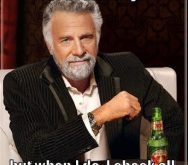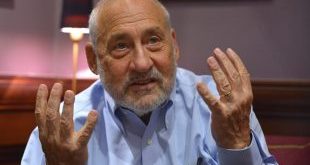Concepts that have proven useful in ordering things easily achieve such an authority over us that we forget their earthly origins and accept them as unalterable givens. Thus they come to be stamped as “necessities of thought,” “a priori givens,” etc. The path of scientific advance is often made impassable for a long time through such errors. For that reason, it is by no means an idle game if we become practiced in analyzing the long commonplace concepts and exhibiting those...
Read More »Developing Asia: The growing divergence between China and the rest
fromC. P Chandrasekhar and Jayati Ghosh The past year has brought into sharp relief the significant differences between China and the rest of the world. The experience of the pandemic is probably the most extreme and definitive expression of that: the ability of China to contain the spread of the virus and prevent a renewed outbreak of any substantive nature is unmatched by almost all other countries, with the exception of a few outliers. The reasons for this certainly deserve separate...
Read More »Checking your statistical assumptions
from Lars Syll The assumption of additivity and linearity means that the outcome variable is, in reality, linearly related to any predictors … and that if you have several predictors then their combined effect is best described by adding their effects together … This assumption is the most important because if it is not true then even if all other assumptions are met, your model is invalid because you have described it incorrectly. It’s a bit like calling your pet cat a dog: you can try...
Read More »Degrowth vs. growthism
from Jamie Morgan and RWER issue 93 [D]egrowth advocates tend to question the naturalisation of growth and objectification of an economy as though we had no alternative, they do highlight the structural conditions that lead to exploitation in the name of progress. For example, Gerber states: “The ideology of growth – or growthism – is at the core of capitalism. Growthism sustains capitalism politically because it allows avoiding redistribution by giving the impression that everyone will...
Read More »First time on this ride???
Cassandras whose counsel should no longer be ignored
from John Benedetoo and RWER issue 93 In the 1980s and early 1990s, mainstream economists railed against heterodox economists and non-economist thinkers for questioning the appropriateness of “free trade” and for advocating national industrial policies. The debate was resolved, at least among the arbiters of acceptability, in favor of the mainstream economists. And yet, the heterodox arguments ring now like the unheeded warnings of prophets, while the mainstream economic view looks more...
Read More »The reason 2008 was a momentous year
from Yanis Varoufakis . . . . Trump trades on anger, weaponises hatred and meticulously cultivates the dread with which the majority of Americans have been living after the financial bubble burst in 2008. Obscenities and contempt for the rules of polite society were his means of connecting with a large section of American society. The reason 2008 was a momentous year wasn’t just because of the magnitude of the crisis, but because it was the year when normality was shattered...
Read More »Where modern macroeconomics went wrong
from Lars Syll DSGE models seem to take it as a religious tenet that consumption should be explained by a model of a representative agent maximizing his utility over an infinite lifetime without borrowing constraints. Doing so is called micro-founding the model. But economics is a behavioral science. If Keynes was right that individuals saved a constant fraction of their income, an aggregate model based on that assumption is micro-founded.Of course, the economy consists of individuals who...
Read More »Donald Trump and being deplorable
from Dean Baker As it increasingly looks like Joe Biden has won the election, I see many people around me appalled that so many of their fellow citizens can vote for someone as racist, sexist, and otherwise offensive as Donald Trump. Given what we know about the guy, and think everyone else should know about him as well, it is hard not to be appalled. But we will not get anywhere politically by looking at half the country with disgust. Trying to win over some of Trump’s voters doesn’t...
Read More »Developing Asia: The growing divergence between China and the rest
from C. P Chandrasekhar and Jayati Ghosh The past year has brought into sharp relief the significant differences between China and the rest of the world. The experience of the pandemic is probably the most extreme and definitive expression of that: the ability of China to contain the spread of the virus and prevent a renewed outbreak of any substantive nature is unmatched by almost all other countries, with the exception of a few outliers. The reasons for this certainly deserve separate...
Read More » Real-World Economics Review
Real-World Economics Review




